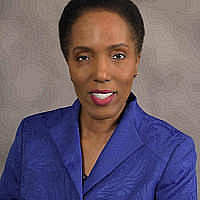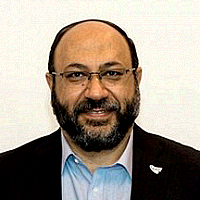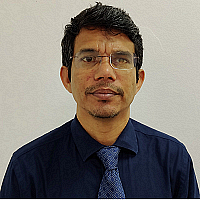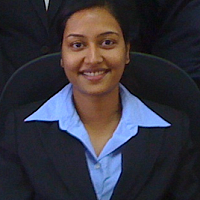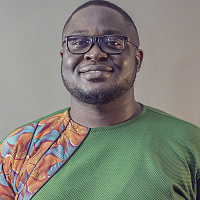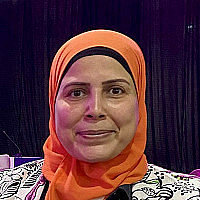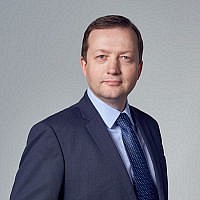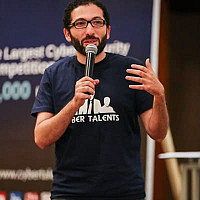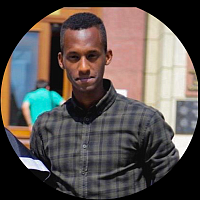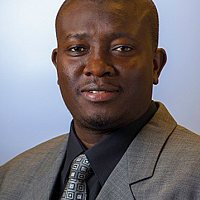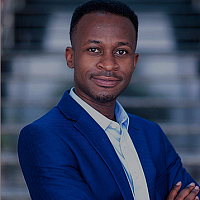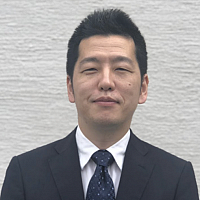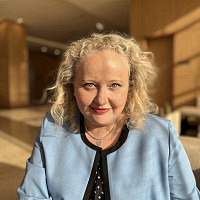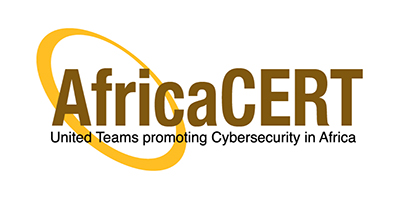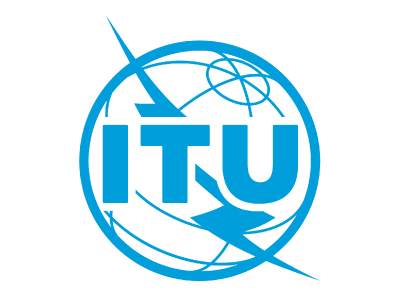The ever-changing cyber landscape teaches that the cyber world is no longer one where only technical professionals have the responsibility to protect society. At the same time, emerging technologies, surging threats, risk, and compliance demands, in addition to the requirement to adapt practices and controls to the cloud and remote work, demand skilled security teams. The panel will explore lessons learned and good practices to develop cybersecurity talent, different pathways to enter the cybersecurity workforce, and meeting the demand to establish more entry-level positions and opportunities that provide avenues for growth and advancement.
Moderated by: Jean-Robert Hountomey works as a cybersecurity researcher for a global technology leader. His investigation areas include Cybersecurity Health and Maturity, Product Security, Privacy Engineering, Secure Software Development Life Cycle, Incident Management, Vulnerability Research, and Technology Policy. Mr. Hountomey contributes to the community as a co-founder of the Africa Forum of Incident response and security teams (AfricaCERT), and the African Anti-Abuse Working Group. He also contributes to FIRST SIGs, CVE Outreach, AUCSEG, ISOC, ICANN, AfriNIC, AfNOG, etc... At AfricaCERT his focus covers issues and opportunities related to law, technology, and Internet Governance, standards on digital security, cyber workforce, and recently ICS/OT Cybersecurity.
Professor Assane Gueye joined Carnegie Mellon University Africa on August 1, 2020. Prior to joining CMU Africa, he was a faculty member at the ICT Department at the University Alioune Diop of Bambey, Senegal, where he also leads the research group “Technologies de l’Information et de la Communication pour le Développement” (TIC4Dev). Gueye also holds a guest researcher position with the National Institute for Standards and Technology, Gaithersburg, Maryland, USA.
Assane completed his Ph.D. in electrical engineering and computer sciences from UC Berkeley in March 2011. He received a master’s degree in 2004 in communication systems engineering from Ecole Polytechnique Fédérale de Lausanne, Switzerland.
His research focuses in two main areas: performance evaluation and security of large-scale communication systems, and information and communication technologies for development (ICT4D). Assane is a Fellow of the Next Einstein Forum (Class of 2016). In 2019 he was nominated as a member of the European Alliance for Innovation (EAI) inaugural Fellow Class.
Audrey Mnisi Mireku is a cybersecurity professional with over 22 years of working experience. A core founder for Future Jewels, a child online protection NGO, Vice president for Women in Cybersecurity West Africa affiliate ( WiCyS WA) and a board member of the Forum of Incident Response Security teams. She was part of the team that built the Ghana Cyber Security Authority, contributed towards drafting the Ghana Cyber Security Act, ACT 1038 and Ghana's National Cyber Security Strategy, and led the setup and operationalisation of Ghana's National CERT and led the team into joining FIRST in 2019. Audrey has remarkable work experience in both the private and public sectors; she worked for institutions such as The Central Bank of Eswatini, the US Embassy in Eswatini, Millicom Ghana, National Cyber Security Authority and is currently the Chief Information security and risk Officer at the Ghana Association of Banks.
Moataz Salah is a cyber security entrepreneur with 15+ years of experience . He is the founder of CyberTalents, a platform for top talented cyber security professionals. CyberTalents is a global platform for learning, practicing, and testing cybersecurity skills. We provide our customers with a platform to host their CTFs, gamified training solutions, security recruitment services, and CSaaS. Moataz helped to run 200+ CTF events on his platform in addition to building the largest database of cybersecurity professionals in MENA and was able to provide cybersecurity jobs to hundreds of cybersecurity talents. In 2010, Moataz launched the most valuable cyber security conference in Egypt, Cairo Security Camp, since the launch, is the must attend conference for all cyber security Community.Moataz focuses on building the cyber security awareness culture in the Arab community through his conference, competitions, boot camps with a clear objective to discover young cyber security talents in this part of the world through his platform https://cybertalents.com/ .Before launching CyberTalents, Moataz has been working for a couple of international companies including Intel and Valeo after being graduated from the faculty of engineering, Communication department, Alexandria university.
Abigail Dede Okley - is a Consultant in Deloitte’s Risk Advisory. She plays active roles in providing Information Security, Implementation of ISMS and PCI DSS Standards, IT Audit and Vulnerability Assessment and Penetration Testing (VAPT) for clients in different sectors of the economy. She involves in helping organizations conform to standards and regulations. She supports organizations in implementing international best practices such as ISO 27001, ISO 20000, ISO 22301, PCI DSS, Data Privacy and compliance, Risk assessment and management (ISO 31000 and 27005)
Abigail holds a Master's Degree in Digital Forensics and Cybersecurity, and certifications in Information Security. She has relevant skills in implementing information security standards, audits, and Vulnerability assessments.
She has worked with various organizations in different sectors of the economy, assessing readiness for regulations and guiding the implementation of policies and processes to achieve compliance. She has assisted with numerous vulnerability assessment engagements to identify and remediate critical security flaws within enterprise networks.
Martin Koyabe has over 25 years of experience working on ICT deployment, innovation, research and development, policy, regulation, and legislation. He is currently a consultant and lead technical expert for the Global Forum on Cyber Expertise (GFCE) and leading the African Union (AU)-GFCE Collaboration Project to enhance Cyber Capacity Building (CCB) and Cyber Resilience across all 55 AU member states. Prior to joining the GFCE, he was the Head of Technical Support & Consultancy (TSC) Division at the Commonwealth Telecommunication Organisation (CTO) in the UK for seven 7 years. He was responsible for managing the delivery of ICT technical support and development assistance to the Commonwealth (which consists of 56 member countries) and beyond.
Before joining the CTO, he worked as a Senior Researcher & Technical Lead with British Telecommunications (BT) for 10 years. While at BT he worked on various major projects including BT 21st Century Next Generation Network, developing ICT security solutions, policy, and strategies for BT’s lines of business, including cutting-edge research on Future Internet Architecture, and development of a Global Best Practice framework for mitigating Distributed Denial-of-Service (DDoS) on the Internet.
Martin has been involved in various ICT projects mainly in Europe, the US, the Caribbean, Asia Pacific, and extensively in Africa. He is also a technical expert for the European Commission (EC), World Bank, UN, ITU, and the GFCE. He has led and delivered a number of national strategies in Cybersecurity, Broadband, Telecommunication Regulation, and Digital Transformation for a number of organisations in various countries.
In addition to the current AU-GFCE Collaboration Project, he has led various other global projects, working with various countries, to develop National Cybersecurity Strategies, National Broadband Strategies, Universal Service Funding Frameworks, CERT/CSIRT, Regulations, Policies and Legislations. Some of these countries include Botswana, Cameroon, Uganda, Fiji, Malawi, Mozambique, Tanzania, Senegal, Eswatini, Ghana, Nigeria, Sierra Leone, Kenya, Rwanda, Bangladesh, Seychelles, Namibia, Pakistan, Sri Lanka, India, The Commonwealth of Dominica, Bermuda, Afghanistan, Jamaica, St. Kitts & Nevis, Montserrat, Trinidad & Tobago, South Africa, and Liberia.
Martin is accredited for being among the first Kenyan Internet engineers to bring Full Internet deployment to Kenya in the mid-90s, while working as Principal Engineer for African Regional Centre for Computing (ARCC), Nairobi, Kenya. He was instrumental in reviewing various key ICT related legislations, regulations and policies for the Republic of Kenya.
He has a PhD in Communications Engineering and holds several patents. He is an alumni of Egerton University (KE), Nairobi University (KE), Bristol University (UK), University of Aberdeen (UK), Cambridge University, Judge Business School (UK), and Harvard Kennedy School (USA).





